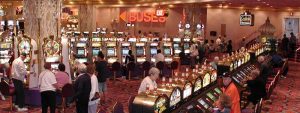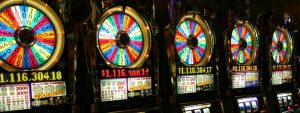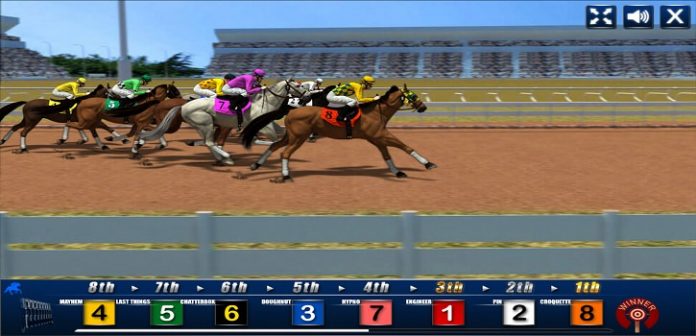Virginia has so far lagged behind its neighbors to the north with regard to gaming.
While other Southern states, especially those states along the coast, have added gambling in the hope of snagging tourist dollars, Virginia has no casinos to speak of. It does, however, allow horse track racing and gaming. But, new draft rules that are being considered by the Virginia Racing Commission would allow historical racing machines at a horse track and betting parlors within the state.

The Move Toward Gaming in Virginia

Virginia has gradually moved toward adding additional gaming in the state. The Pamunkey Indian Tribe is considering adding a casino as part of its tribal casino plans, which it hopes would bring in additional tourists to the coast to gamble. In addition, there is some talk of adding other forms of gaming in order for Virginia to reap some of the revenue that is being enjoyed by nearby states, such as Pennsylvania and New Jersey.
This move to add additional gaming machines comes on the heels of concerns that traditional horse racing in the state, long a popular pastime, has fallen on hard times. In the past, Virginia rivaled Kentucky in the quality of both horses and horse racing. But, several tracks in Virginia, including Colonial Downs near Richmond, have had to close, citing poor attendance and poor revenue.
The Debate over Gaming in Virginia
Citing the 2014 closure of Colonial Downs and purchase of the property by a Midwestern racing company, the racing commission, noted that without adding gaming at the horse tracks, they may all be doomed to fail. The racing commission may add up to 3,000 historical horse racing machines at Colonial Downs when it reopens in 2019, as well as other venues, as a way to bring interest and tourists back to horse racing.
While Virginia’s governor, Ralph Northam, signed a bill to legalize the historical racing machines, which operate like slot machines, many critics have called it an attempt to expand gaming in the state, which, so far, has not been inclined to add gaming venues. Northam has stipulated that the machines must have limitations, but he didn’t specify what those limitations are.
Historical Gaming Machines

Historical gaming machines at horse tracks, which are legal in several states in the United States, are also being debated in a handful of other states. Players gamble on horse races that have already been run, without viewing information that could identify the jockey or the horse. Because the historical gaming machines work much like slot machines, players could put money in very quickly to gamble on the outcome of a race. The first priority will be to install at least 700 machines at Colonial Downs, with the possibility of adding more. Other betting parlors across the state, in cities with populations of more than 120,000, would be permitted as well. Large cities will be allowed to get as many as 700 machines.
In order to get the machines in their areas, city or county governments will have to approve them. Cities can apply for between 150 to 700 machines depending on the size of their populations. In addition, the machines at Colonial Downs are tied to the number of live racing days. In order to add more machines, the new owners of the track will have to add more racing days to the racing bill. The Chicago-based owners are also looking to add more horse tracks, and have looked at adding venues in Kentucky as well. Kentucky, another large horse racing state, has added historical horse racing machines to some of its tracks.
Disclaimer: All images are copyright to their respective owners and are used by USA Online Casino for informational purposes only.












